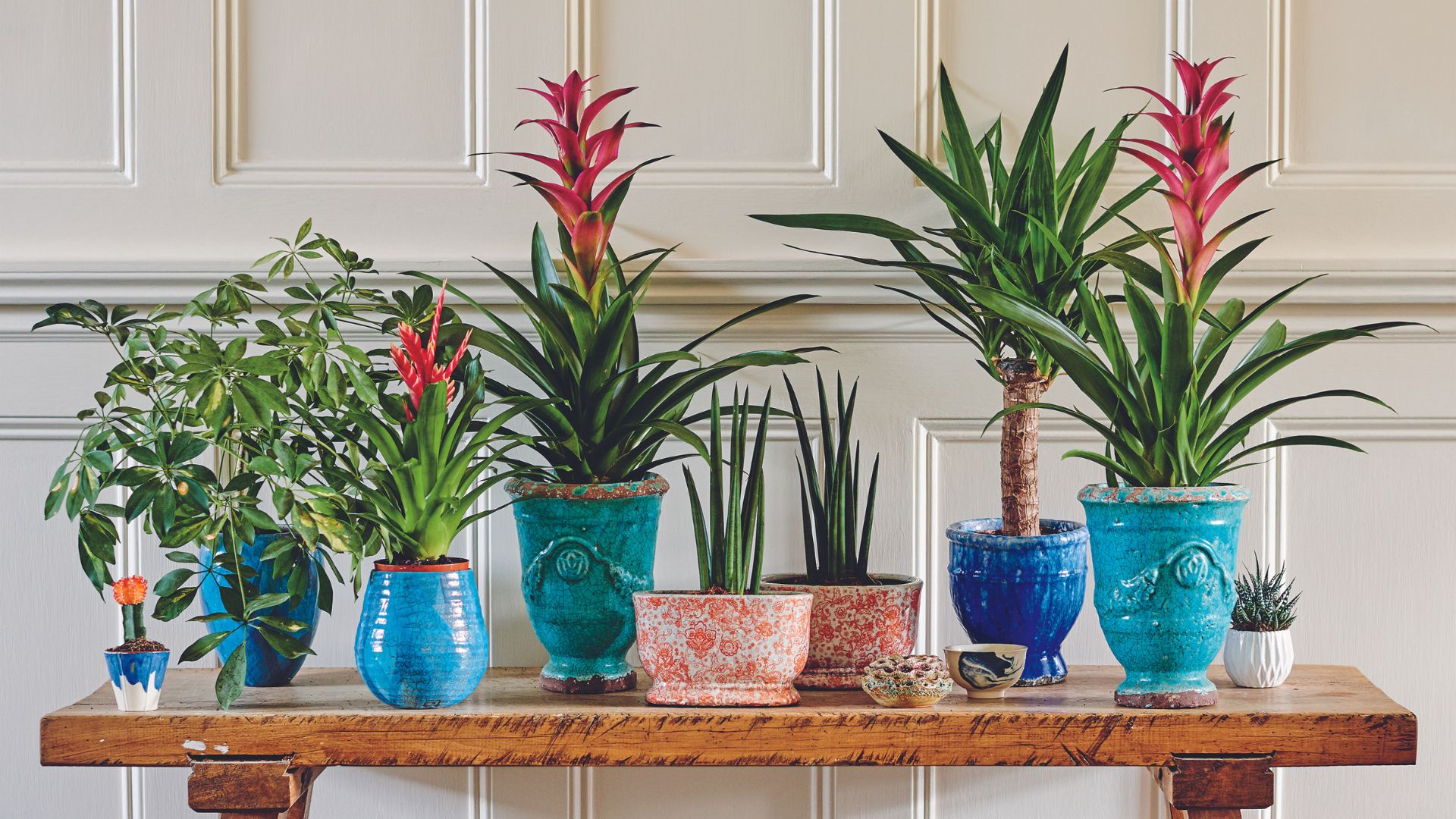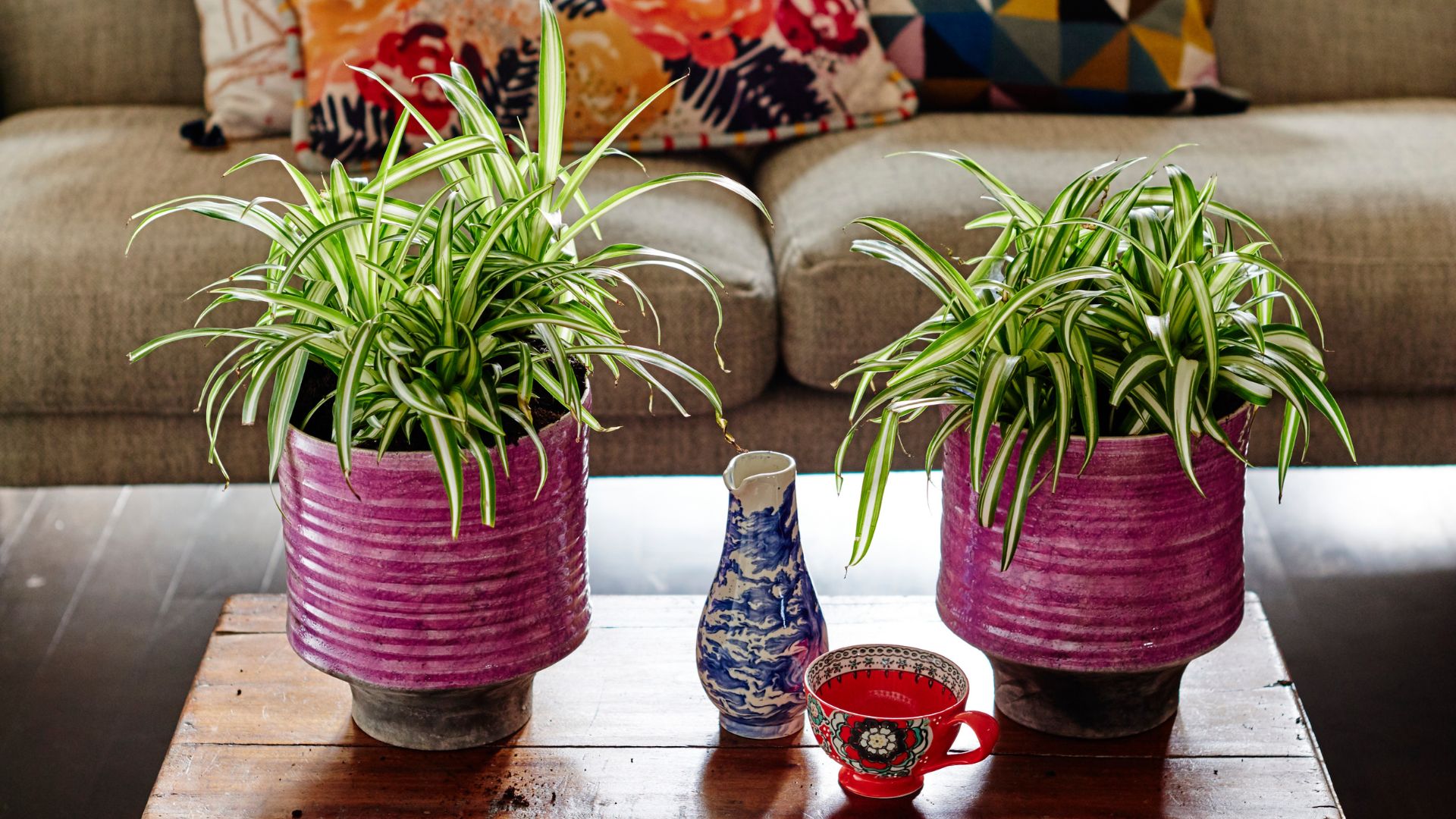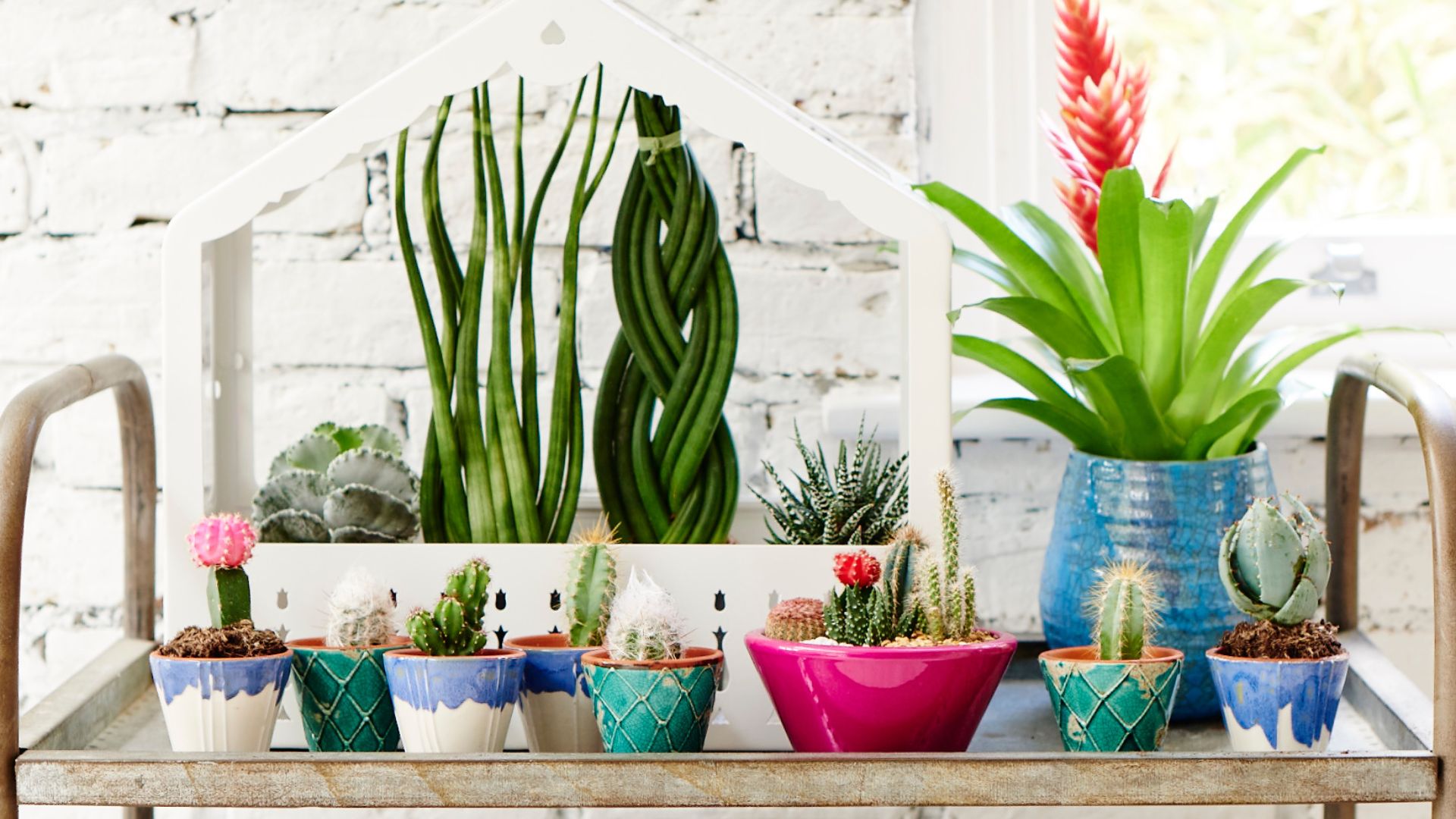
Still, confused over how often should you water indoor plants? Having a large collection of thriving houseplants is all well and good until you realise they all need slightly different maintenance levels.
If you're surrounded by the best fragrant plants to make your house smell good then you've probably noticed how tricky it can be to keep track of which plant needs what and how often. Knowing how to care for an orchid won't help you greatly when your snake plant needs tending to or you're trying to determine why your peace lily tips are turning brown.
We chatted to plant experts to find out for once and all how often we should be watering our houseplants and why.
How often should you water indoor plants?
Whatever houseplant you're caring for, there are a few considerations to take into account when it comes to the amount of water each needs and how often.
Similar to how long you should water your lawn differs with weather conditions, some plants need a lot more water than others. How often you water a succulent will be minimal compared to other plants, for instance, a peace lily leaf will droop if not watered often.
"The frequency of watering houseplants will depend on the type of plant, its size, the potting mix used for it and the environmental conditions it’s in," explains Peter Ivanov, a plant expert at Fantastic Gardeners.
He does however say that there is a general rule you can follow for watering plants, he explains it's best to only water a plant when the top layer, approximately 2.5 centimetres, of its topsoil feels dry to the touch.
The top layer of soil being dry is the first indicator that your plant needs watering, and getting to the job early will also prevent any leaf damage from occurring.

"For most houseplants, watering once or twice a week during the warmer seasons and less frequently during the cold ones is a good starting point," explains Peter.
Aside from these seasonal differences, you will also need to adjust your watering routine based on a plant's individual needs and what environment you have it sitting in. Conditions such as the humidity level, amount of sunlight and room temperature all have to be considered when deciding how often to water a houseplant.
There are of course some expectations of the weekly watering rule, unlike other houseplants succulents and cacti will benefit from minimal watering and only when their soil is completely dry. Whereas orchids or citrus plants will need a significantly higher amount of water on a more regular basis.
How do I know when to water my houseplants?
Aside from the usual care instructions, knowing when to water your houseplants can be a lot more difficult than you may have first imagined. Even houseplants that can help with condensation in any room and are often surrounded by humidity may still need regular watering.
As mentioned above by Peter, a great way to determine whether your plant is in desperate need of a drink is to examine its topsoil. "If it feels dry at the depth of 2.5 centimetres, most of the time, it’s an indication that it's time to water your houseplant," explains Peter.
"If it doesn’t and the soil is still damp, avoid watering. You’ll need to check every single one of your houseplants because their needs will of course naturally differ."
There are also clearer ways to tell your plant needs watering, this will differ from species to species, but a plant's leaves are a great indicator of what care it needs. "Major signs of underwatering include dry, crispy leaves, wilting and soil that pulls away from the edges of the pot," says Peter.
If you notice any of these symptoms on your plant you need to reconsider your watering routine and get that watering can ready.

What is the best way to water houseplants?
You're probably thinking there's surely only one way to water a house plant but it actually turns out there's more to it than simply pouring water into the pot.
Speaking to David Denyer, two-time Florist of the Year, he says, "Start with a little amount of water and if the plant soaks it up quickly then it may need a little more, just keep an eye out not to overwater." Overwatering can lead to as just as many issues as underwatering will, a classic sign when your bay tree leaves turn brown.
Once you've established a watering routine that works for all the different plants in your home, the hardest part is over. David says keeping a means of watering nearby will make keeping to the routine a lot easier. He states, "If you have a watering jug to hand - this can be very useful to directly target the soil and not the leaves so the roots can absorb as much water as possible."
We've found an adorable terracotta red 1L watering can at B&Q for just £9 which is perfect for your leafiest plants due to its long spout.
As the experts have shown, knowing how often to water your houseplant can be much more complex than you may have ever anticipated. However keeping up with a strict and efficient watering routine can make all the difference, it could be the reason your peace lily leaves are turning yellow and limp.







